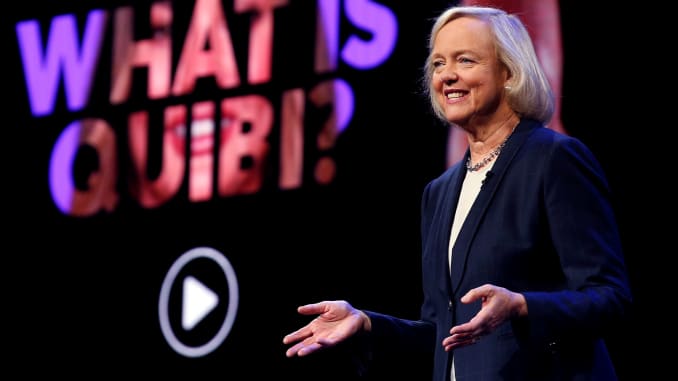Quibi had 1.7 million downloads in its first week, is working on TV casting support
CEO Meg Whitman says Quibi might’ve launched with TV casting support if company had ‘known about COVID’
After all of the hype and a barrage of TV advertising, Quibi tallied over 1.7 million downloads in its first week after launch. CEO Meg Whitman revealed the stat to CNBC’s David Faber this morning, also noting that the median age of Quibi viewers is (so far) somewhere in the low 30s.
Quibi, which is exclusively available on Android and iPhone, gives users a free trial period of 90 days, and the company previously said it would “refrain” from disclosing subscriber numbers and app download figures until after the trial window. 1.7 million is a bit better than analysts had been expecting, with estimates ranging between 1 and 1.5 million. But that number is still small potatoes compared to Quibi’s much larger rivals. Disney Plus surpassed 10 million users (and 3.2 million app downloads) on its launch day, which is a tough act to follow. After the trial, Quibi charges $4.99 per month for an ad-supported plan or $7.99 for commercial-free viewing.
Whitman noted that 80 percent of customers who start watching a show at least finish the first episode. That’s not necessarily impressive when you consider that Quibi’s “quick bites” content always runs under 10 minutes in length. So it’s not at all clear whether any of Quibi’s originals have staying power, and making shows harder to share isn’t helping. On a separate Fox Business interview this morning, Whitman mentioned that Quibi is stocked up on original programming through November.
Quibi’s other main problem is a lack of TV support. Jeffrey Katzenberg and Whitman launched their big streaming gamble without any kind of TV app or large-screen experience, but the company seems to be fast-tracking that part now — after initial reviews cited it as a major downside to the paid video service. “We had always planned to be able to cast to your TV, so we’re going to see if we can accelerate that in the engineering roadmap,” Whitman said on CNBC. “We’ll eventually get there, but it was never a part of the launch. If we had known about COVID, maybe it would have been.”
